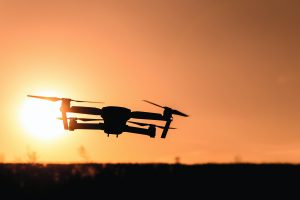Table of Contents
Introduction
Numerous countries ban drones. Though they are becoming more popular, a few people use them for bad intentions and are reckless. Because of this, several countries placed a ban on them, such as Nicaragua. Then some countries such as India allow drones but only among those with permits and licenses.
However, aside from that, drones are beneficial to provide security and help society. So let’s talk about why there should not be any ban on drones unless it comes to those who use them recklessly for recreational reasons.
Drones Are Essential For Emergency Response
Drones contain cameras, and they can help many people in emergencies that come with natural disasters such as earthquakes or tornados. Therefore, rescue teams employ drones for search and rescue purposes to capture images of aerial views that ordinary helicopters cannot take.
Since drones fly in the air, they can get a much better view and go to affected areas where vehicles and bikes cannot go. In addition, thermal imaging pairs with drones, and as a result, they can provide emergency response teams an easier way to find victims of any natural disaster or other emergencies.
California launched a program in 2019 that sent drones out for this purpose, and the reason for that was to rescue victims in the wildfire that ravaged the state that year. Drones were beneficial then, and if there are bans on drones, that will harm people’s lives during emergencies such as earthquakes, tornadoes, tsunamis, wildfires, etc. Drones do save lives! There are other reasons you do not want to see a ban on drones as they are helpful beyond emergencies, such as using them for urban planning.
Drones Are An Important Part Of Urban Planning
Urban centers are growing, and that is because the populations are increasing in many parts of the world. That means new cities or existing smaller cities need to adapt to the growing population, which will cause congestion. Therefore, urban planners utilize drones to help them understand the environments in the proposed or some proposed or existing cities’ territory, giving them ideas on improving those environments to make them more livable for larger populations.
The way drones can help is by having the ability to take aerial pictures properly to provide urban planners with the information they need to make plans for new urban centers or improve existing ones. The other advantage of drones for urban planners is that photography is less expensive since photography crews can be costly.
The great thing is that smaller FPV drones can shoot fantastic footage inside of homes and buildings if urban planners need to use them for their work. Therefore, banning drones would mean urban planners would have a challenging time with their work and spend more money hiring photography crews. Farmers also need drones for agricultural work.
The Use Of Drones Is Necessary For Agricultural Purposes
Farmers worldwide utilize technology to improve their farming methods as they look for new approaches to reduce costs while expanding yields, and drones are the solutions. Therefore, drones collect data for farmers about their crops, and they can use that data to improve their farms.
Additionally, farmers use drones to cultivate crops, which can be tedious, time-consuming, and detailed. Therefore, drones can help farmers save time, money, and resources to be attentive to other responsibilities. If there is a ban on drones, farmers will suffer the consequences too, which is another reason not to prohibit drones. The military also needs drones.
Drones Are Life-Saving To The Military
The military uses drones and has done so for over a decade. The General Atomics MQ-1 Predator is the drone that the military uses, and you have seen it in television shows and movies. That drone is big, but the military also uses smaller ones for surveillance. The military needs drones because they save the lives of military personnel by taking aerial pictures of dangerous situations and areas before sending out military members.
You can see what kind of disastrous outcome would result from banning drones in the military. That is because the ban would put their lives at risk since drones can send essential military information about dangerous areas. Without that information, the military would risk their lives going to those hazardous areas without knowing how deadly they are. However, there are also future uses for drones that can be helpful to humanity.
What Does The Future Look Like For Drones?
Drone technology is frequently evolving to the point that drones can fly independently without hitting objects. In addition, there is a creation of larger drones on the horizon to carry more extensive groups of people to transport them from one place to another, which will be like those flying cars that you see in the movies and on television shows. In some cases, companies such as Ehang turned this idea into a reality, and more companies will follow.
Amazon is also working on drones for deliveries as these drones would fly to a customer’s house to deliver a package and then return to its premises. That also means drones will provide takeout to customers’ homes. Drones have the potential to change the world positively, which is why banning them would be a disaster. The possibilities for using drones in the future are endless.
Conclusion
Numerous countries ban drones because some people use them recklessly for recreational purposes, and others use them maliciously. However, drones should not be banned because they provide essential and life-saving purposes for the military and emergency crews when searching and rescuing because of natural disasters. Urban planners and farmers use them too, which does their jobs and lives much easier, and drones are also very cost-effective. There are also so many possibilities for drones to serve purposes in the future as they are already starting to be those flying cars that old futuristic movies and television shows had. Therefore, banning drones would be the worst thing anyone can do when technology evolves so much. It does not appear that most countries will even consider it either, which is good news.

